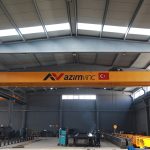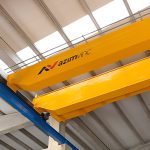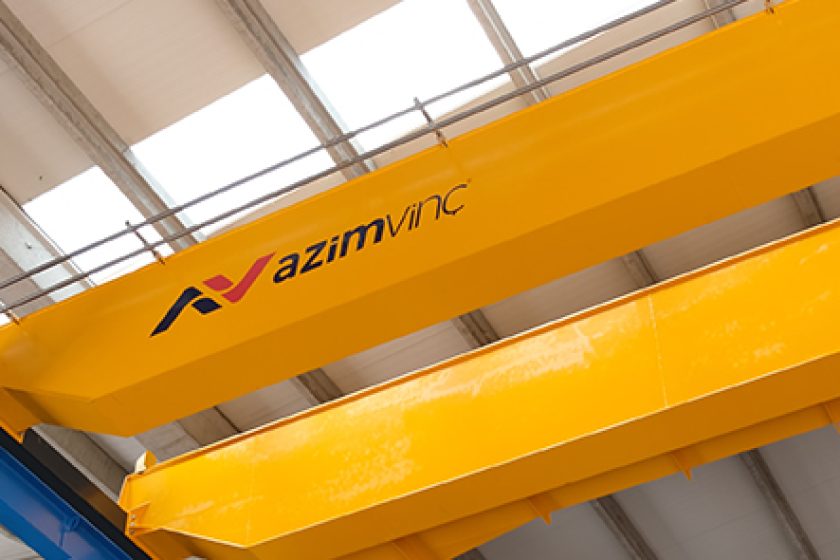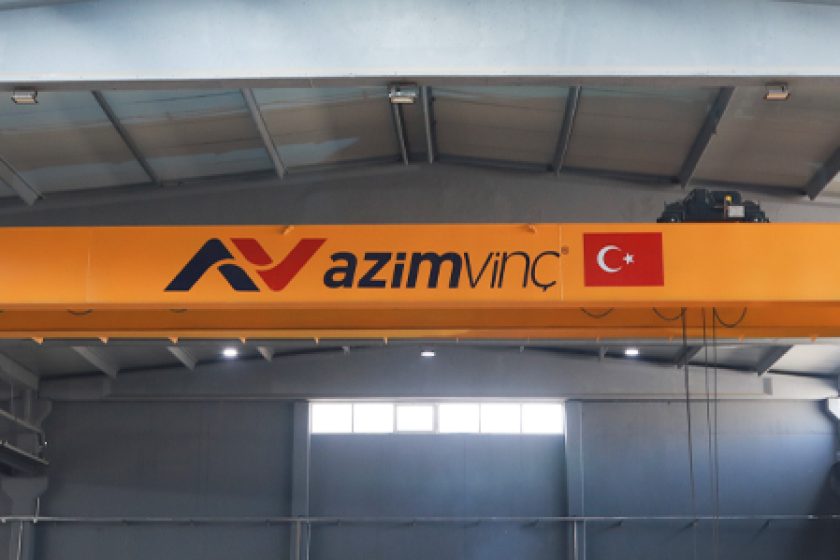Making the right choices during this process when having a factory crane built increases the efficiency and safety of your factory. The factors that need to be considered when purchasing a crane will allow you to find the most suitable solutions for your needs. So, what are these factors? Factors such as capacity, energy efficiency, and post-installation maintenance should be considered during the decision-making phase.
Which Type of Crane is Right for You?
Factors such as the size of your factory, production capacity and the loads you need to carry determine the type of crane you need. Choosing the one that best suits your factory’s needs among options such as bridge cranes, gantry cranes or monorail cranes will optimize your operations.

How to Determine Crane Capacity?
Crane capacity is one of the most critical points in the process of having a factory crane built. The heaviest loads to be carried in your factory are the main factors in determining the crane capacity. Choosing the wrong capacity increases both safety risks and can cause operational disruptions.
Crane Layout and Installation Details
When having a crane installed in your factory, it is important to evaluate whether the crane layout is suitable for the interior layout of your factory. While a bridge crane is preferred in factories with high ceilings, a monorail crane can be more efficient in more compact areas. Considering the labor and time that will occur during installation ensures that production continues uninterrupted.
Security and Maintenance Needs
When choosing a factory crane, it is vital to evaluate compliance with safety standards and maintenance needs. Regular maintenance and safety checks of cranes ensure long-term use and an accident-free working environment. Crane manufacturing companies must provide the necessary certificates and maintenance plans.

Advanced Technology and Automation Features
Automated and high-tech cranes for modern factories can greatly increase operational efficiency. Remotely controlled crane systems provide flexibility and speed in production processes. By evaluating how technological solutions can be integrated in your factory, you can choose a crane that meets your future needs.
Post-Installation Support and Technical Services
After the crane installation is completed, technical support and maintenance services are of great importance. Regular maintenance of the crane system installed in your factory and rapid intervention in case of any technical problems prevents operational interruptions. Factors such as warranty, spare parts supply and service network offered by your crane provider ensure safe and uninterrupted use.
Choosing the right crane for your factory is of great importance in terms of operational efficiency and safety. Azim Crane makes your production processes seamless by offering high quality and safe solutions to suit your needs with the factory cranes it produces.
Frequently Asked Questions (FAQ)
How long will the production line be down during crane installation?
Installation time will vary depending on the size of your factory and the type of crane, but with a planned installation, disruption to the production line can be minimized.
What are the regular maintenance periods for cranes and how are operations affected during maintenance?
Maintenance of cranes is usually organized according to production activities and is carried out at certain intervals. Regular maintenance prevents operational interruptions and ensures the safe use of cranes.
How to design a crane suitable for the architectural structure of the factory?
Crane design is done by considering your factory’s ceiling height, production area and transportation needs. Good planning ensures efficient crane integration.
What are the advantages of remote control crane systems?
Remotely controlled cranes increase work safety and enable operators to work more precisely and flexibly. They also speed up production processes and increase efficiency.
How to obtain crane safety certificates and how does the process work?
After the crane is manufactured, certificates are obtained in accordance with national and international safety standards. The certification process is carried out depending on the inspection and approvals of regulatory institutions.





